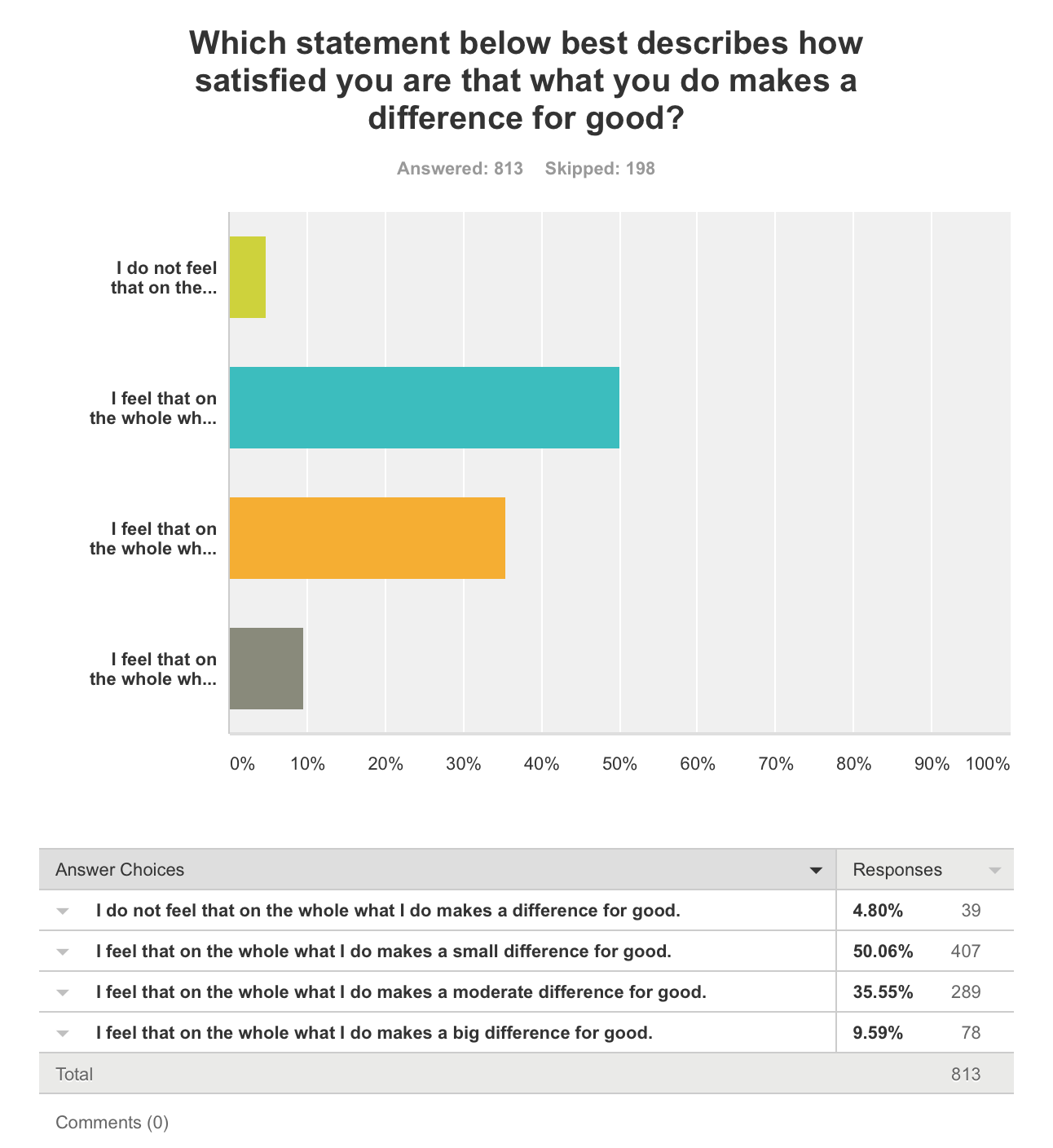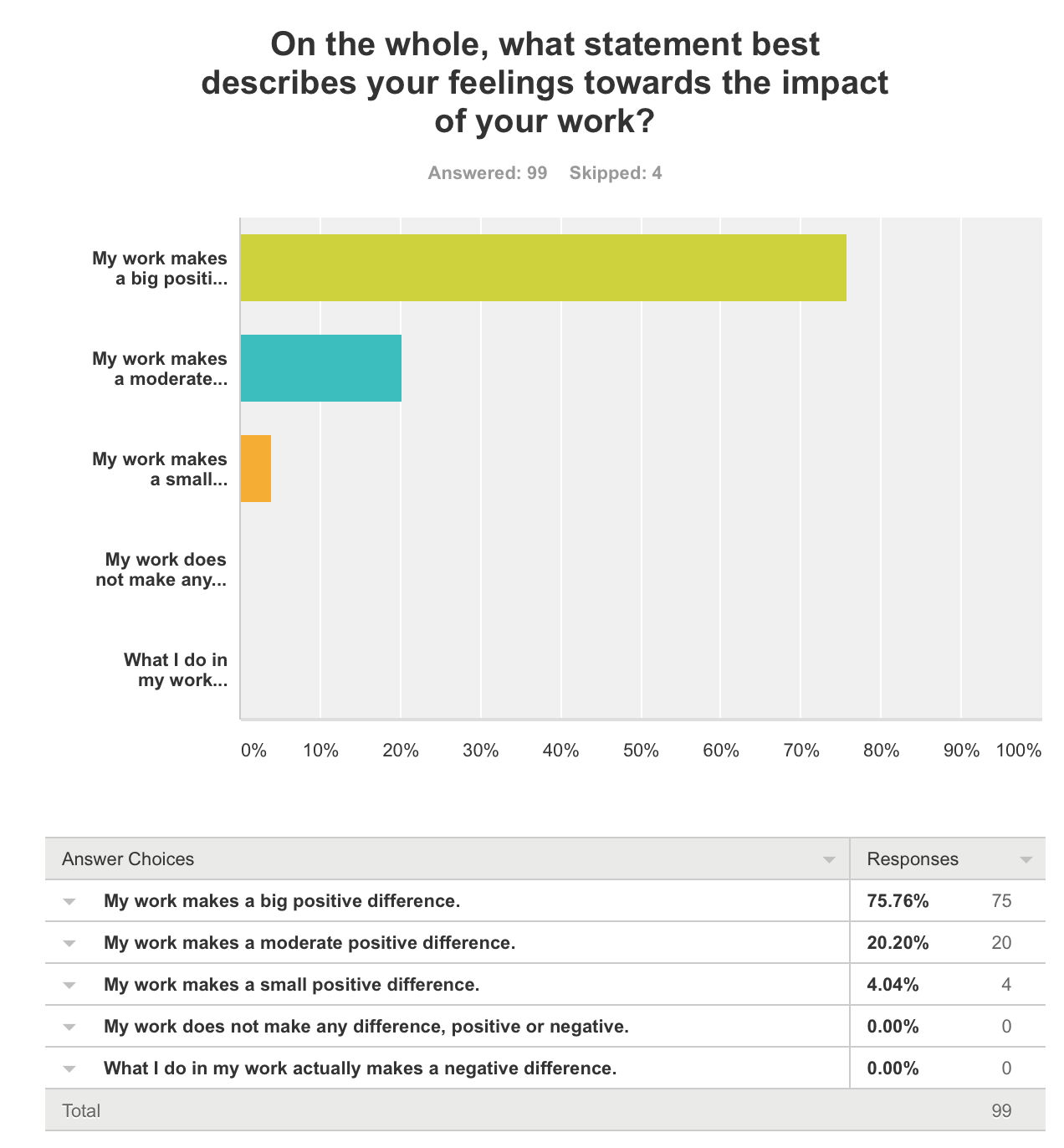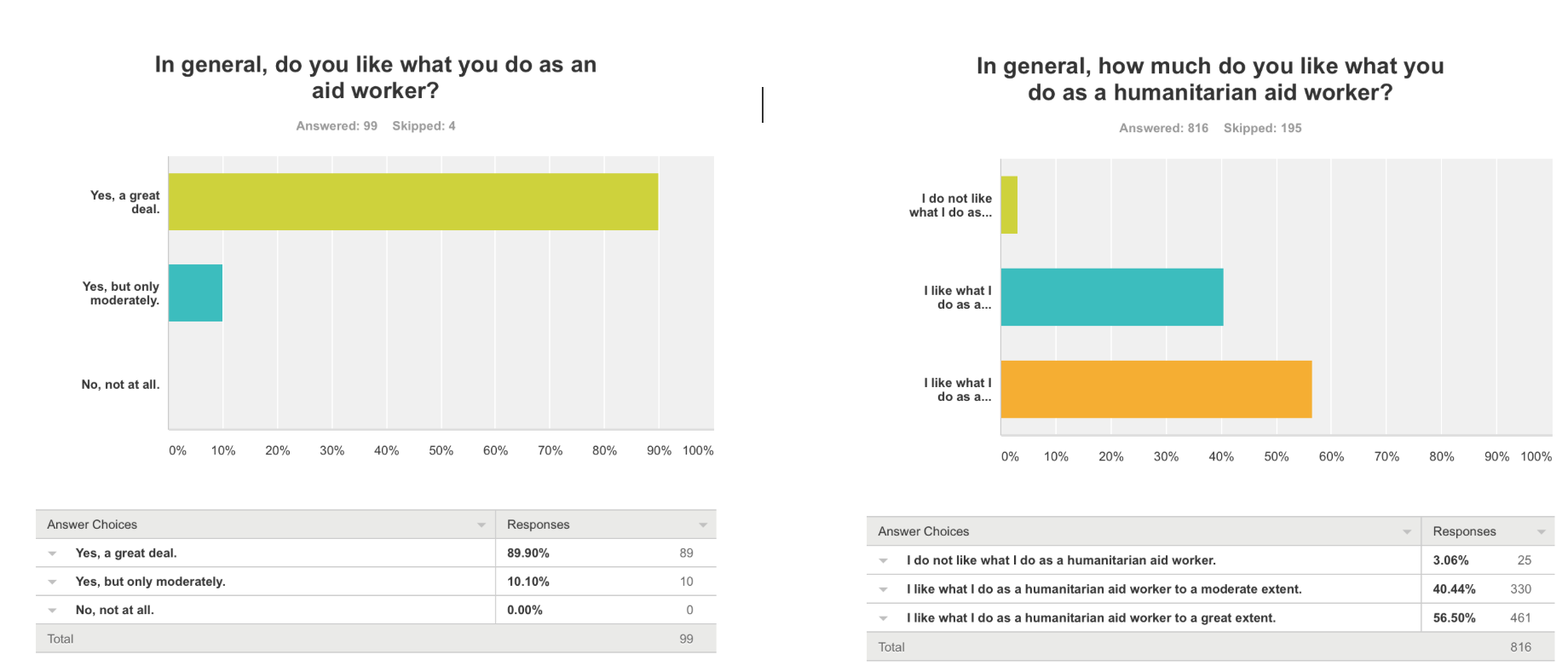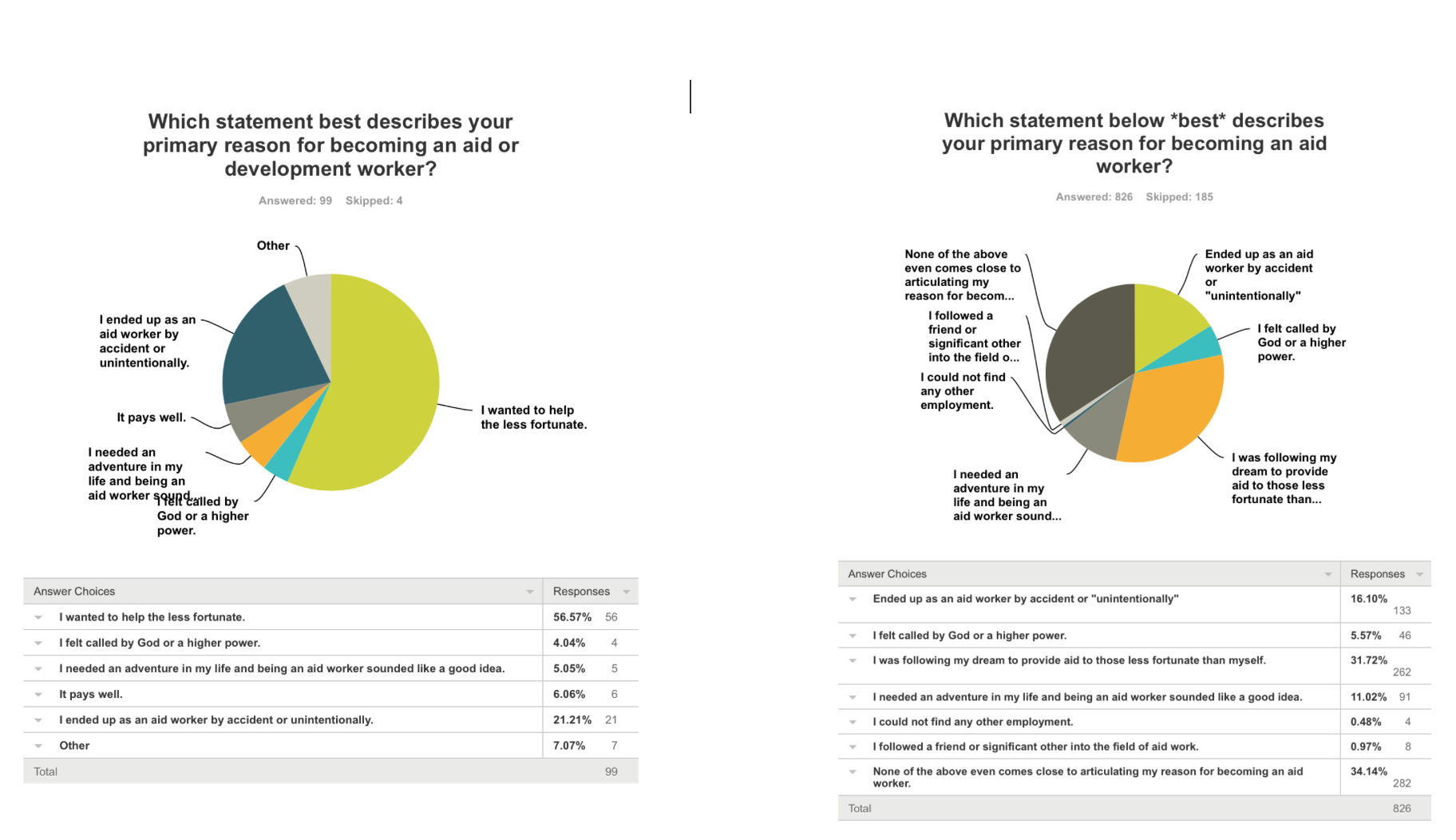A quick look comparing new Filipino data with (mostly) expat data from 2014
Context
In spring of 2014 25+ year veteran aid worker J (Evil Genius) and I launched a survey that ultimately had over 1000 responses from aid and development workers globally. Most who responded were ‘expat’ aid workers, and a majority of those from the global north. The results of that survey were the original basis for this blog and my book Aid Worker Voices. In this short post I compare the responses from the 2014 data and the responses now coming in from aid and development workers in the Philippines where we currently have well over 100 respondents. For the most part I will present the ‘what’ and not the ‘why’, leaving deeper analysis for when we close the current survey in a couple weeks.
What difference am I making?
Though the question and response option wordings were slightly different in the two surveys, the contrast between the Filipino aid and development workers and our larger, mostly expat responses are dramatic. The vast majority -95%- of the workers from the Philippines reported that their work makes a big positive (76%) or at least a moderate positive (20%) impact. Here is the data so far from our survey in the Philippines.
By contrast, only 46% of the expat workers reported believing that their efforts make a big positive or moderate difference.  Demographically the two samples are similar in terms of gender and years of service. So, how to explain this huge difference with almost all -95%- to less than half -46%? I’ll leave deeper analysis on that until we have all the data and examine the responses to more questions, but my impulse now is to attribute a portion of the difference to cultural factors and another portion to the fact that, well, Filipino workers feel like they are making significant impact with their work, a clear sign of overall job satisfaction.
Demographically the two samples are similar in terms of gender and years of service. So, how to explain this huge difference with almost all -95%- to less than half -46%? I’ll leave deeper analysis on that until we have all the data and examine the responses to more questions, but my impulse now is to attribute a portion of the difference to cultural factors and another portion to the fact that, well, Filipino workers feel like they are making significant impact with their work, a clear sign of overall job satisfaction.
So, let us turn to that question.
Like what you do?
Another, more straightforward question related to job satisfaction is “Do you like what you do [as an aid or development professional]? On the left below are the Filipino results indicating again an overwhelming majority -90%-signaling that they like what they do “a great deal.” On the right are the 2014 results indicating a much less robust 57% saying they like their job to “a great extent.”
So, why do Filipino aid workers appear to like their jobs more and feel that they are making a bigger impact with their work than do (mostly) expat aid workers? Future research efforts are needed to (1) confirm the above and (2) to probe deeper into the ‘why’ as to these differences.
Why are you where you are?
A third question which provided an addition contrast had to do with why the respondent was in the aid sector to begin with. Here are the results, again with the recent data from the Philippines on the left and 2014 survey on the right. As I mentioned above, the question and response option wordings were slightly different in the two surveys, but both offered a “help the less fortunate” option. Of the three comparisons I make in this post, this one is more ‘apples and oranges’ than the other two in that there is a big difference between “other” and “None of the above.” That said, the data offer big differences.
Among the Filipino aid and development workers a clear majority -57%- indicated they entered the sector because they wanted to “help the less fortunate.” The 2014 data show only about a third -32%- indicating the same motivation.
More to come
Describing results is always easy compared to explaining what patterns and differences appear. As a mentioned above, some variation may be attributable to cultural differences, but I think there are other factors at pay. As is the nature of exploratory research such of this my hope is that these preliminary data can help us move forward in better understanding both local and expat aid and development workers.
Soon to come more thoughts on the ‘dual compensation’ issue.
As always, if you have comments or feedback reach me here and Arbie on Twitter @arbiebaguios.





 Follow
Follow